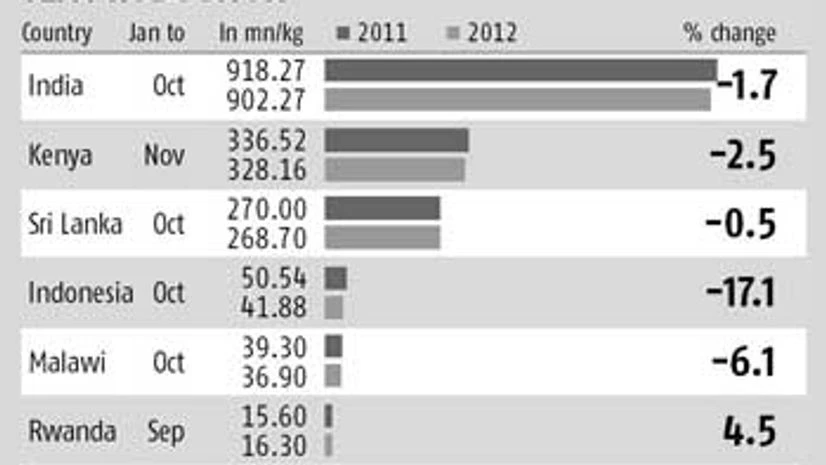A memorandum of understanding has been signed between the respective tea boards; the proposal would require Cabinet approval in the final stage. The combined output of these six countries is a little over 80 per cent of the global black tea.
It may be noted, though, that some of the biggest producers are not part of the proposed combination. China and India are the top two; Turkey is in the top half a dozen, and Rwanda and Malawi rank way down.
Tea producers and packet tea companies are unanimous that with growing competition from commodities such as coffee, the move to form a common platform is imperative. However, there is also some apprehension that if the fragmented sector does come together, the daily cup of tea could become costlier.
“It’s not something new. Since the 1930s, it’s been experimented with, to keep prices in check but, today, it’s more market-oriented,” said Arun Singh, chairman of the Indian Tea Association, the promotional body of the sector in this country.
During the Great Depression of the early 1930s, an international tea cartel was formed between India, Ceylon and Java/Sumatra to reduce output and curb exports but it met with limited success, due to varying degrees of implementation.
“We normally have no information about production levels in other countries. If there is exchange of data, it will help stabilise prices,” Singh explained.

He is more worried about competition from coffee. The International Tea Producers’ Forum, as the common platform has been named, will create a corpus for generic promotion of tea. “The corpus has not been decided as yet. We are now debating on the headquarters. It could be Colombo or Dubai,” said Singh.
Some tea producers, however, are not convinced the proposed platform is feasible. “Kenya and Sri Lanka are export-oriented, while India is domestic-focused, so I am not sure about the success of this platform,” says a producer. An age-old problem; as noted even during the Great Depression, is the lack of unity among such players, which ultimately brought down the plan.

)
